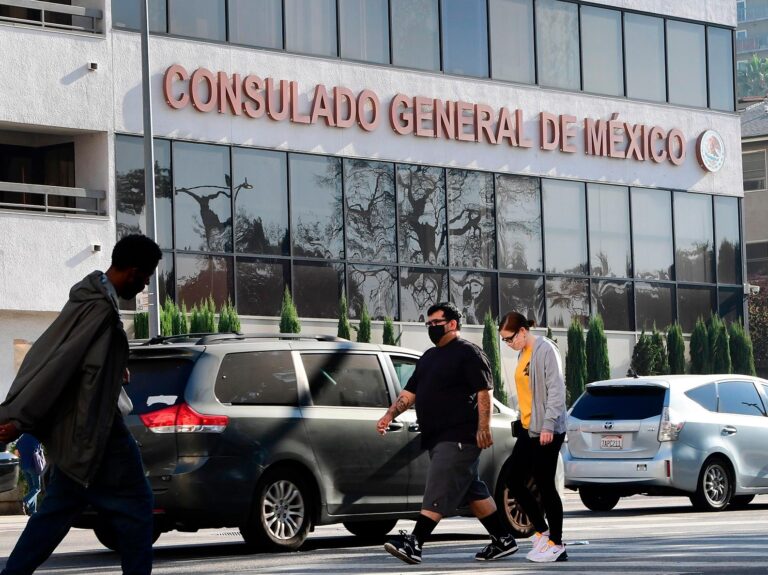How Drug Cartels Leverage Political Changes in the U.S. and Mexico to Strengthen Their Operations
In a rapidly evolving security environment, drug trafficking organizations are increasingly attuned to political developments in both the United States and Mexico. Recent investigations, including those reported by Dallas News, reveal that these criminal networks are not only observing but actively attempting to influence political shifts to protect and broaden their illicit enterprises. This growing entanglement between organized crime and political affairs poses serious challenges for governance, law enforcement, and bilateral relations across North America.
Cartels Exploit Political Transitions to Adapt Their Strategies
Drug cartels meticulously track changes in political leadership and legislative priorities on both sides of the border. These shifts often bring new policies on border control, drug enforcement budgets, and immigration regulations, all of which directly affect cartel operations. By swiftly adjusting to these changes, cartels expand trafficking corridors, diversify their illegal product lines, and deepen corruption networks within vulnerable institutions.
Primary political factors under cartel surveillance include:
- Regulations impacting cross-border commerce and customs inspections
- Allocation of resources and priorities within federal and state law enforcement agencies
- Variations in international collaboration on narcotics interdiction
| Political Element | Effect on Cartel Tactics |
|---|---|
| Border Security Policies | Development of sophisticated smuggling methods to evade detection |
| Reductions in Law Enforcement Funding | Expansion into less monitored territories |
| Diplomatic Strains | Breakdowns in joint operations and intelligence exchange |
Influence of U.S. and Mexican Political Dynamics on Cartel Operations
The fluid political environment between the U.S. and Mexico plays a pivotal role in shaping cartel decision-making. These groups continuously analyze legislative reforms, shifts in enforcement focus, and diplomatic relations to identify vulnerabilities and forecast enforcement trends. For example, when border security cooperation intensifies or drug sentencing laws become stricter, cartels respond by rerouting shipments or increasing bribery efforts within local governments.
Key political influences currently shaping cartel behavior include:
- Political Messaging: Strong anti-cartel rhetoric during election cycles often triggers preemptive surges in trafficking before security measures tighten.
- Trade Regulations: Modifications to trade agreements can either hinder or facilitate the import of precursor chemicals vital for drug manufacturing.
- Judicial Policy Changes: Reforms in criminal justice systems influence cartel risk calculations, affecting their use of violence versus covert tactics.
| Political Development | Cartel Adaptation | Resulting Impact |
|---|---|---|
| Increased Funding for Border Patrol | Shift to less monitored smuggling routes | Short-term disruption followed by long-term operational shifts |
| Judicial Reforms in Mexico | Evolution of money laundering techniques | Enhanced ability to conceal illicit proceeds |
| U.S. Tariffs on Trade | Seeking alternative sources for chemical inputs | Increased costs and delays in drug production |
Law Enforcement Tactics to Counter Politically Driven Cartel Adaptations
To effectively combat the evolving tactics of drug cartels, law enforcement agencies must adapt their strategies in tandem with political developments. Emphasizing intelligence-driven operations allows authorities to better understand how cartels exploit political changes and to anticipate their next moves. Enhanced cross-border cooperation, including real-time intelligence sharing through joint task forces, has become a cornerstone in disrupting cartel networks.
Current law enforcement initiatives focus on:
- Community Outreach: Programs designed to reduce cartel influence and recruitment at the grassroots level.
- Cutting-Edge Surveillance: Deployment of advanced technologies to monitor illicit trafficking and communications.
- Anti-Corruption Efforts: Legislative advocacy aimed at increasing transparency and combating political corruption in cartel-affected regions.
| Approach | Focus Area | Anticipated Outcome |
|---|---|---|
| Intelligence Fusion Centers | Data Integration and Sharing | Enhanced coordination and operational effectiveness |
| Strengthened Border Patrol | Border Security | Reduced trafficking opportunities |
| Political Corruption Task Forces | Accountability and Transparency | Weakened cartel influence within political systems |
Policy Initiatives to Bolster U.S.-Mexico Collaboration Against Cartel Influence
Addressing the growing political infiltration by drug cartels requires a comprehensive and coordinated bilateral approach. Strengthening intelligence-sharing frameworks between U.S. and Mexican agencies is critical to preempt cartel infiltration. Establishing joint task forces dedicated to investigating political corruption linked to cartels can accelerate the identification and prosecution of compromised officials. Moreover, sustained investment in community resilience programs along border areas can disrupt cartel recruitment and influence.
Recommended policy actions include:
- Harmonizing anti-corruption legislation with synchronized enforcement to close legal loopholes exploited by cartels
- Increasing funding for advanced surveillance and cyber-intelligence capabilities across borders
- Launching educational campaigns to raise public awareness about the risks of cartel political interference
- Implementing transparent systems for monitoring political donations and lobbying to detect illicit financing
| Policy Area | Expected Benefit |
|---|---|
| Joint Anti-Corruption Task Forces | Accelerated detection of cartel-linked political actors |
| Legal Alignment on Corruption | Reduced exploitation of regulatory gaps |
| Public Education Campaigns | Empowered communities resisting cartel influence |
Conclusion: Navigating the Complex Nexus of Cartels and Politics
As political environments continue to shift in the U.S. and Mexico, drug cartels are increasingly integrating political analysis into their operational planning. Recognizing and countering this sophisticated interplay is essential for law enforcement and policymakers alike. Sustained vigilance, enhanced bilateral cooperation, and community engagement remain vital components in mitigating cartel influence and protecting regional security.







